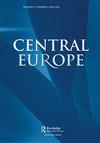冲突中的职业:20世纪上半叶克罗地亚药学的政治与经济
IF 0.1
2区 历史学
Q2 HISTORY
引用次数: 0
摘要
本文将阐述社会、政治和经济进程对克罗地亚医药行业形成和发展的影响,直到第二次世界大战结束。政治轴心和占主导地位的经济理论塑造了制药行业与国家结构之间复杂的相互作用历史,戏剧性地将行业分化为利益集团。本文将侧重于业主和雇员之间在专业利益、社会问题和政治意识形态方面的分歧所产生的冲突,这种冲突在1914年萨格勒布雇员罢工中变得明显,并在第二次世界大战后以南斯拉夫所有药房的国有化告终。主要的论点是,老板和员工之间的冲突在制药行业创造了强大的变革动力。它促使各种阶级组织和官方公报的成立;影响了关于新药品立法的辩论;认识到建立社会保护和社会保险工具的必要性;使特许经营制度出现问题,最终导致民营药店转为国有药店。这些复杂的过程嵌入了对制药行业独特身份的追求。本文章由计算机程序翻译,如有差异,请以英文原文为准。
A Profession in Conflict: Croatian Pharmacy between Politics and Economy in the First Half of the Twentieth Century
ABSTRACT This paper will elaborate the impact of social, political and economic processes on the formation and development of the pharmaceutical profession in Croatia until the end of the Second World War. Political axes and dominant economic theories shaped a complex history of interactions between the pharmaceutical profession and state structures, dramatically polarizing the profession into interest groups. The paper will focus on the conflicts which arose from disagreements between owners and employees regarding professional interests, social issues and political ideologies, that became evident with the 1914 employees’ strike in Zagreb and ended with the nationalization of all Yugoslav pharmacies after the Second World War. The main argument is that the conflict between the owners and the employees created powerful dynamics of change in the pharmaceutical profession. It induced the establishment of various class bodies and official gazettes; influenced the debates around new pharmaceutical legislation; awakened the need to establish instruments of social protection and social insurance; problematized the concession system, and ultimately led to the conversion of private pharmacies into state-owned ones. These complex processes were embedded in the quest for the unique identity of the pharmaceutical profession.
求助全文
通过发布文献求助,成功后即可免费获取论文全文。
去求助
来源期刊

Central Europe
HISTORY-
CiteScore
0.20
自引率
0.00%
发文量
7
期刊介绍:
Central Europe publishes original research articles on the history, languages, literature, political culture, music, arts and society of those lands once part of the Habsburg Monarchy and Poland-Lithuania from the Middle Ages to the present. It also publishes discussion papers, marginalia, book, archive, exhibition, music and film reviews. Central Europe has been established as a refereed journal to foster the worldwide study of the area and to provide a forum for the academic discussion of Central European life and institutions. From time to time an issue will be devoted to a particular theme, based on a selection of papers presented at an international conference or seminar series.
 求助内容:
求助内容: 应助结果提醒方式:
应助结果提醒方式:


